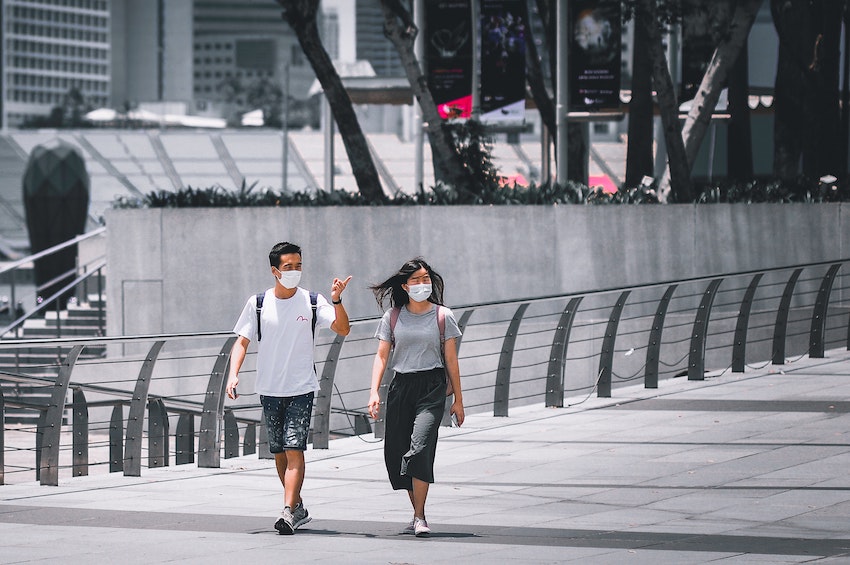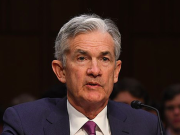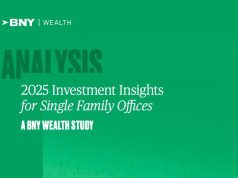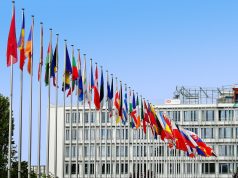
IMF 2020 Report – The Worst Recession Since the Great Depression

IMF World Economic Outlook 2020
The Worst Recession Since the Great Depression
The International Monetary Fund (IMF) has released the World Economic Outlook 2020, projecting global economy to decrease by 3% (GDP) in 2020. The IMF also classified the global pandemic (The Great Lockdown) as the worst recession since the Great Depression of 1929 to 1939.
” The Worst Recession since the Great Depression “
” It is very likely that this year, the global economy will experience its worst recession since the Great Depression, surpassing that seen during the global financial crisis a decade ago ” ~ International Monetary Fund (IMF)
This is the IMF World Economic Outlook 2020 for Chapter 1. The full report will be released in May 2020.
Related:
- IMF 2020 Report – The Worst Recession Since the Great Depression
- Top Videos of IMF World Economic Outlook 2020 Report
- List of Economic Crisis Since 1900 – 2015
More on IMF World Economic Outlook Report:
- Foreword
- Executive Summary
- IMF World Economic Outlook 2020 Report – Chapter 1
- IMF World Economic Outlook 2020 Report – Full Report
- IMF World Economic Outlook 2020 Report – Website
IMF World Economic Outlook 2020: Key Points

IMF World Economic Outlook 2020: Key Points
” GDP to decline 3% in 2020 “
- The worst recession since the Great Depression (1929-1939)
- The global economy is projected to decrease by 3% (GDP) in 2020.
- The global economy is projected to have a partial recovery and to grow 5.8% (GDP) in 2021
- Considerable uncertainty about the rebound and worser outcomes are possible
GDP Forecast: 2020 & 2021

| GDP | 2019 | 2020 | 2021 |
| World | 2.9% | -3.0% | 5.8% |
| Advanced Economies | 1.7% | -6.1% | 4.5% |
| Emerging & Developed | 3.7% | -1.0% | 6.6% |
The global economy is likely to shrink by 3% in 2020.
IMF Forecast:
- 2019: 2.9%
- 2020: -3.0% (IMF Forecast)
- 2021: 5.8% (IMF Forecast)
What -3.0% (2020) and 5.8% (2021) growth means:
Using a base of $100 at the end of 2019, if GDP falls by 3% to $97 in 2020, GDP will grow to $102.62 in 2021 if growth rate is 5.8%.
This means a total of 2.62% GDP growth over 2 years (2020 and 2021), or 1.31% per year or 1.3% annualised from the end of 2019)
GDP Forecast: Americas, Europe & Asia

GDP Forecast: Americas & Europe
| Americas & Europe | 2019 | 2020 | 2021 |
| US | 2.3% | -5.9% | 4.7% |
| Euro Area | 1.2% | -7.5% | 4.7% |
| UK | 1.4% | -6.5% | 4.0% |
| Brazil | 1.1% | -5.3% | 2.9% |
| Russia | 1.3% | -5.5% | 3.5% |
GDP Forecast: Asia
| Asia | 2019 | 2020 | 2021 |
| China | 6.1% | 1.2% | 9.2% |
| India | 4.2% | 1.9% | 7.4% |
| Japan | 0.7% | -5.2% | 3.0% |
| ASEAN5 | 4.8% | -0.6% | 7.8% |
ASEAN5: Indonesia, Malaysia, Philippines, Thailand, Vietnam
Key Summary

IMF World Economic Report 2020 Summary:
- Global economy will experience its worst recession since the Great Depression
- Global economy will shrink dramatically
- A partial recovery is projected for 2021
- Level of GDP will remain below pre-virus trend
- Considerable uncertainty about the strength of the rebound
- Worst are possible, if containment measures last longer, emerging and developing economies are more severely hit, tight financial conditions persists or widespread scarring effects due to firm closures and extended unemployment
1. Crisis to be Managed in 2 Phases

Crisis to be Managed in 2 Phases
- Containment & Stabilisation
- Recovery
While the economy is shut down, policymakers will need to ensure that people are able to meet their needs and businesses can pick up once the acute phases of the pandemic pass.
This requires substantial targeted fiscal, monetary, and financial measures to maintain the economic ties between workers and firms, lenders and borrowers. This will keep intact the economic and financial infrastructure of society.
2. Actions / Recommended Actions
- New digital technologies may be used to deliver targeted support in emerging & developing economies
- Broad-based stimulus and liquidity facilities can lift confidence and limit shocks
- Swift actions by central banks have averted a sharp drop in asset prices and confidence
- Swap lines between major central banks to provide international liquidity
3. Economic Impact & Changes
- Economic landscape will be altered significantly for the duration of crisis and possibly longer, with governments and central banks involvement in the economy
- Advanced economies with strong governance capacity, well-equipped health care systems, and the privilege of issuing reserve currencies are relatively better placed to weather this crisis.
- Several emerging market and developing economies without similar assets and confronting simultaneous health, economic, and financial crises will need help from advanced economy bilateral creditors and international financial institutions.
4. Global Cooperation

Global Cooperation
- Multilateral cooperation will be key
- Sharing equipment and expertise to reinforce health care systems around the world
- Global effort to ensure rich and poor nations have access to therapies and vaccines developed for COVID-19.
- The international community will need to step up financial assistance to many emerging market and developing economies.
- Debt moratoria and restructuring possibilities for those facing large debt repayments
5. Preparing for the next Pandemic or Similar Crisis
- Measures that could be adopted to prevent something like the pandemic from happening again.
- Improvements to the global public health infrastructure
- Greater and more automatic information exchange on unusual infections
- Earlier and more widespread deployment of testing, building global stockpiles of personal protective equipment
- Putting in place protocols for no restrictions on trade in essential supplies could enhance the security of both public health and the global economy.
6. Optimism despite Crisis
- There are many reasons for optimism, despite the dire circumstances.
- The number of new cases declined, after strong social distancing practices in countries with major outbreaks.
- The unprecedented pace of work on treatments and vaccines also promises hope.
- The swift and substantial economic policy actions taken in many countries will help shield people and firms, preventing severe economic pain and create the conditions for the recovery.

Foreword by Gital Gopinath, Chief Economist at IMF
“ When the world economy last faced a crisis of this magnitude in the 1930s, the absence of a multilateral lender-of-last-resort forced countries to scramble for international liquidity, adopting futile mercantilist policies in that pursuit, which further worsened the global downturn.
A crucial difference in the current crisis is we have a stronger global financial safety net—with the IMF at its center—that is already actively helping vulnerable countries.
Ten years ago, the IMF’s member countries boosted the Fund’s resources to assist financially constrained countries during the 2008-09 global financial crisis.
The IMF is again actively engaged in supporting national-level policy efforts to limit the economic damage through its lending facilities, including rapid-disbursing emergency financing. And its members are again stepping up to further strengthen the IMF’s resources in what looks to be an even bigger crisis than the one we experienced a decade ago. Such efforts will go a long way toward ensuring that the global economy regains its footing after the pandemic fades, workplaces and schools reopen, job creation picks up, and consumers return to public places—in short, ensuring that we can return to our economic routines and social interactions that we took for granted not so long ago “
Foreword by Gital Gopinath. She is the Chief Economist at the International Monetary Fund (IMF). At IMF, Gital holds the role of Economic Counsellor and Director of the Research Department. She is also a John Zwaanstra Professor of International Studies and of Economics at Harvard University, and currently on leave of public service at the IMF.
View
- Foreword
- Executive Summary
- IMF World Economic Outlook 2020 Report – Chapter 1
- IMF World Economic Outlook 2020 Report – Full Report
- IMF World Economic Outlook 2020 Report – Website
This is the IMF World Economic Outlook 2020 for Chapter 1. The full report will be released in May 2020
About International Monetary Fund (IMF)
 The International Monetary Fund, or IMF, promotes international financial stability and monetary cooperation. It also facilitates international trade, promotes employment and sustainable economic growth, and helps to reduce global poverty. The IMF is governed by and accountable to its 189 member countries.
The International Monetary Fund, or IMF, promotes international financial stability and monetary cooperation. It also facilitates international trade, promotes employment and sustainable economic growth, and helps to reduce global poverty. The IMF is governed by and accountable to its 189 member countries.
The IMF was conceived in July 1944 at the United Nations Bretton Woods Conference in New Hampshire, United States. The 44 countries in attendance sought to build a framework for international economic cooperation and avoid repeating the competitive currency devaluations that contributed to the Great Depression of the 1930s. The IMF’s primary mission is to ensure the stability of the international monetary system—the system of exchange rates and international payments that enables countries and their citizens to transact with each other.
Sign Up / Register
Caproasia Users
- Manage $20 million to $3 billion of assets
- Invest $3 million to $300 million
- Advise institutions, billionaires, UHNWs & HNWs
Caproasia Platforms | 11,000 Investors & Advisors
- Caproasia.com
- Caproasia Access
- Caproasia Events
- The Financial Centre | Find Services
- Membership
- Family Office Circle
- Professional Investor Circle
- Investor Relations Network
Monthly Roundtable & Networking
Family Office Programs
The 2025 Investment Day
- March - Hong Kong
- March - Singapore
- July - Hong Kong
- July - Singapore
- Sept- Hong Kong
- Sept - Singapore
- Oct- Hong Kong
- Nov - Singapore
- Visit: The Investment Day | Register: Click here
Caproasia Summits
- The Institutional Investor Summit
- The Investment / Alternatives Summit
- The Private Wealth Summit
- The Family Office Summit
- The CEO & Entrepreneur Summit
- The Capital Markets Summit
- The ESG / Sustainable Investment Summit


































